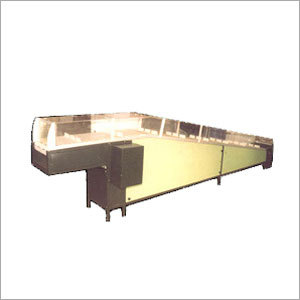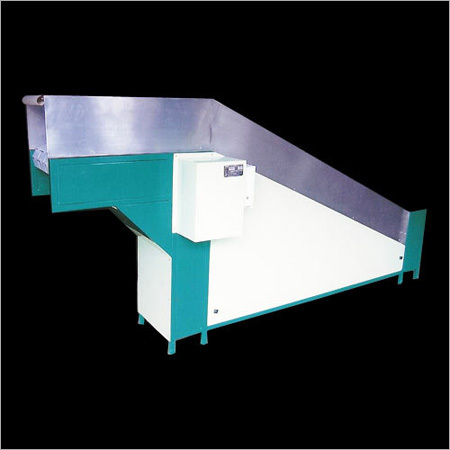Industrial Conveyor Systems
Product Details:
- Usage Industrial
- Product Type Vertical Conveyors,Horizontal
- Material Mild steel
- Voltage 230 AND 415 Volt (v)
- Warranty Yes
- Click to View more
Industrial Conveyor Systems Price And Quantity
- 126000.0 INR/Unit
- 1 Unit
Industrial Conveyor Systems Product Specifications
- Mild steel
- Yes
- Vertical Conveyors,Horizontal
- 230 AND 415 Volt (v)
- Industrial
Industrial Conveyor Systems Trade Information
- 25 Unit Per Month
- 1 Months
- Yes
- Contact us for information regarding our sample policy
- Depend
- All India
Product Description
Conveyor systems for heavy-duty purposes in industrial environments are known as industrial conveyor systems. Within manufacturing facilities, warehouses, distribution centres, and other industrial facilities, these systems are utilised to carry bulk materials, heavy goods, or massive objects. They are designed to resist demanding environments and effectively handle large amounts of material.
Here are some significant characteristics and elements typically included in commercial conveyor systems:
1. Belt Conveyors: Conveyor belts composed of resilient materials, such as rubber, cloth, or metal, are arranged in a continuous loop on a belt conveyor. They are frequently employed in industrial settings because of their adaptability and capacity to work with a variety of materials.
2. Roller Conveyors: To transfer goods along a conveyor line, roller conveyors use a number of revolving rollers. These conveyors are especially useful for moving bulky products or those with uneven or irregular shapes.
3. Screw Conveyors: Screw conveyors carry bulk goods like grains, powders, or granular substances using a revolving screw mechanism. They are frequently employed in sectors like mining, food processing, and agriculture.
4. Chain Conveyors: Chain conveyors use sprockets and chains to carry bulky products or weights. They are frequently employed in fields like the construction of heavy machinery and the manufacturing of automobiles, where toughness and durability are crucial.
5. Overhead Conveyors: Typically using an overhead track system, overhead conveyors are meant to transfer objects above ground level. When floor space needs to be maximised, they are frequently employed in manufacturing lines, painting procedures, or storage systems.
6. Pallet Conveyors: Pallet conveyors are made especially to move items that have been palletized. Pallets are moved about the facility using rollers, chains, or specialised pallet-handling accessories.
7. Control systems: To control the movement, speed, and routing of items, industrial conveyor systems are frequently fitted with cutting-edge control systems. The conveyor system is monitored and controlled using sensors and programmable logic controllers (PLCs), ensuring effective material flow.
8. Safety Features: To safeguard workers and prevent accidents, industrial conveyor systems have safety features including emergency stops, guards, interlocks, and safety sensors.
9. Integration with Other Equipment: To establish a seamless material handling and manufacturing process, industrial conveyor systems can be combined with other industrial equipment like packing machines, weighing systems, robotic arms, or inspection tools.
Industrial conveyor systems have many advantages, including better material flow management, lower labour costs, increased worker safety, and increased production and efficiency. Taking into account elements like load capacity, material properties, facility layout, and operational needs, these systems can be tailored to fulfil particular requirements.
Planning, designing, and installing an industrial conveyor system carefully are essential. Working with knowledgeable conveyor system manufacturers or integrators can assist in ensuring that the system satisfies the required specifications and conforms with applicable laws and regulations.
SPECIFICATION
|
Adjustable Speed |
Yes |
|
Surface |
Polished |
|
I Deal In |
New Only |
|
Material |
As Per Requirement |
|
Type |
Natural Wholes |

Price:
- 50
- 100
- 200
- 250
- 500
- 1000+
Other Products in 'Industrial Conveyor' category
 |
RAMESH ENGG. WORKS
All Rights Reserved.(Terms of Use) Developed and Managed by Infocom Network Private Limited. |
 Send Inquiry
Send Inquiry


